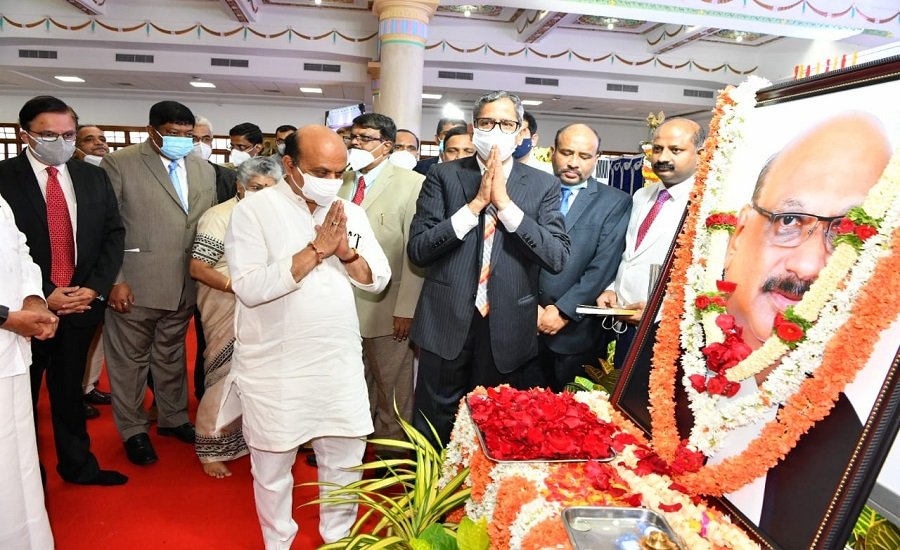
”The simplification of justice delivery should be our pressing concern. It is crucial to make justice delivery more transparent, accessible and effective,” Justice N.V. Ramana said.
BENGALURU — Chief Justice of India Justice N.V. Ramana called for Indianisation of legal system in the country on Saturday in a function held in Vidhana Soudha in Bengaluru organised by the Karnataka State Bar Council to pay tributes to Late Justice Mohana M. Shantanagaudar.
“Very often our justice delivery poses multiple barriers for the common people. The working and the style of courts do not sit well with the complexities of India. Our system, practices, rules being colonial in origin may not be best suited to the needs of the Indian population,” he opined.
“The need of the hour is the Indianisation of our legal system. When I say Indianisation, I mean the need to adapt to the practical realities of our society and localise our justice delivery systems. For example, parties from a rural place fighting a family dispute are usually made to feel out of place in the court,” he observed.
They do not understand the arguments or pleadings which are mostly in English, a language alien to them. These days judgments have become lengthy, which further complicates the position of litigants, he elaborated.
For the parties to understand the implications of a judgment, they are forced to spend more money, he underlined.
“Courts need to be litigant centric, as they are the ultimate beneficiaries. The simplification of justice delivery should be our pressing concern. It is crucial to make justice delivery more transparent, accessible and effective,” he noted.
Procedural barriers often undermine access to justice. The common man should not be apprehensive about approaching the courts and authorities. While approaching the Court, he should not feel scared of the Judges and Courts. He should be able to speak the truth, he said.
It is the duty of the lawyers and the judges to create an environment that is comforting for the litigants and other stakeholders. We must not forget that the focal point of any justice delivery system is “the litigant is the justice seeker”, he explained.
In this light, usage of alternate dispute mechanisms such as mediation and conciliation would go a long way in reducing the friction between parties and would save resources. This also reduces the pendency and requirement for having lengthy arguments with lengthy judgments. As Justice Warren Burger, the former Chief Justice of the United States stated, I quote- “The notion that ordinary people want black-robed judges, well-dressed lawyers in fine courtrooms as settings to resolve their disputes is incorrect. People with problems, like people with pains, want relief and they want it as quickly and inexpensively as possible,” he noted.
Talking about Justice Shantanagudar he mentioned that, “It is with a deep sense of sorrow that I have come here to pay tribute to Hon’ble Justice Mohan M. Shantanagoudar, my Brother Judge who passed away on 24th April 2021.”
“In losing him, the country has lost a common man’s judge. I have personally lost a most cherished friend and a valuable colleague. His contribution to the jurisprudence of the nation, from the time of his elevation to the High Court and particularly during his time in the Supreme Court, is indisputable. His judgments provide a deep insight into his years of experience, his depth of knowledge and his unending wisdom,” he remarked. — IANS

